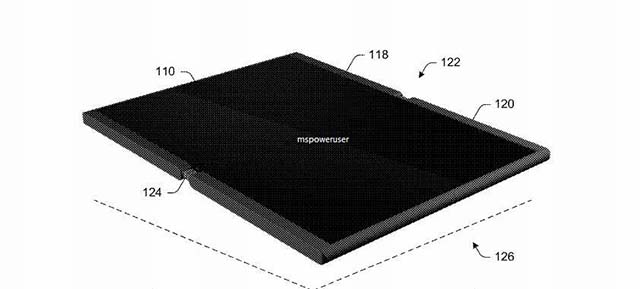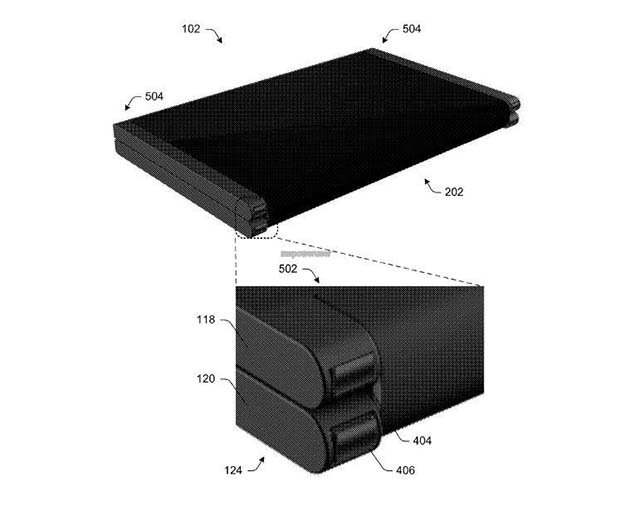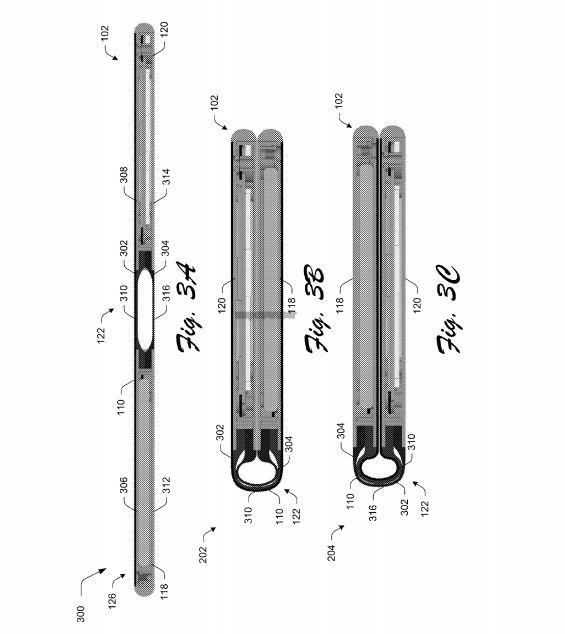Microsoft Reveals Foldable Phone That changes to A Tablet
After the tech giants like Samsung, LG and Nokia, now the tech giant
Microsoft has also patented its own foldable phone that turns into a
tablet.
However, after these two tech giants, the Finnish company Nokia has also expressed interest in joining this trend, and now the tech giant Microsoft has also a patent for a future device of this type.
According to most concepts and images that we’ve seen so far, it looks like flip phones would be a kind of combination of tablets and smartphones we see today, being possible to vary between the two formats deploying or folding the device.
A patent Samsung has already addressed this issue with a system based on a screen with two folds, which would make a concept compact but thick device, able to transform into a tablet medium sized, similar to what is described in the recently discovered Patent from Microsoft.
Finally, it seems that the tech giant Microsoft also joins the era of folding phones.

As told in MSPowerUser, the new patent of Microsoft has now become public, and in it, a tablet/clamshell phone, aided by a flexible hinge located under the flexible screen itself that would use both modes of the same is described.
Usually, we use mobile phones to make calls, send messages or perform similar tasks, while if we want to see multimedia content, we may usually turn it to a tablet or a device with a larger screen, if possible.

With the flip phones, both uses would be possible in a single device, as these could be adapted to the needs of our day to day without having to spend money on two different devices and not only that even those will also occupy more space than desired.

There is still much to see a project clamshell phone in trade, although it is likely that in the case of Microsoft end up seeing some surprises related to the Surface range, providing a device with its easily recognizable design in the industry.
Microsoft Reveals Foldable Phone That Turns Into A Tablet
Recently, we saw that the South Korean giant Samsung including its display manufacturing unit, Samsung Display has joined hands with numerous manufacturers to implement the idea of a foldable smartphone and make it a reality. Hence, along with Samsung, LG will also confirmed that they will present foldable smartphones this year.However, after these two tech giants, the Finnish company Nokia has also expressed interest in joining this trend, and now the tech giant Microsoft has also a patent for a future device of this type.
According to most concepts and images that we’ve seen so far, it looks like flip phones would be a kind of combination of tablets and smartphones we see today, being possible to vary between the two formats deploying or folding the device.
A patent Samsung has already addressed this issue with a system based on a screen with two folds, which would make a concept compact but thick device, able to transform into a tablet medium sized, similar to what is described in the recently discovered Patent from Microsoft.
Finally, it seems that the tech giant Microsoft also joins the era of folding phones.

As told in MSPowerUser, the new patent of Microsoft has now become public, and in it, a tablet/clamshell phone, aided by a flexible hinge located under the flexible screen itself that would use both modes of the same is described.
Usually, we use mobile phones to make calls, send messages or perform similar tasks, while if we want to see multimedia content, we may usually turn it to a tablet or a device with a larger screen, if possible.

With the flip phones, both uses would be possible in a single device, as these could be adapted to the needs of our day to day without having to spend money on two different devices and not only that even those will also occupy more space than desired.

There is still much to see a project clamshell phone in trade, although it is likely that in the case of Microsoft end up seeing some surprises related to the Surface range, providing a device with its easily recognizable design in the industry.






No comments
Post a Comment